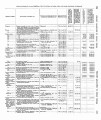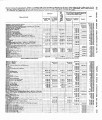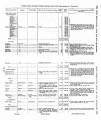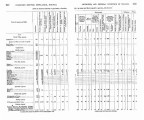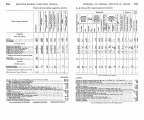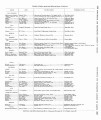| OCR Text |
Show REPORTS OF AGENTH IN DAKOTA. 19 hdian stores, and of rambling hither aod thither over a, vast extent of country, half as laree as their reservation. livin-g b-r huntine, tradioe boraeu ( ~ e r h a ~h, aor se steal-ing), ; iel l tg, gnml,ling, find hcgging. I 1 is rl.t;i l b ~ trh ; wlllrw hi:t~~t~g'l':tnlidll~m+d thew app~aritnve.l ~ur~ 11i1~w:r ilirv$ I W ~ PIII' .III we l ~ n ~ ~l tle .~ ltl.v $ 18~:ay Isi~ntvra nd ascoci:8tr with them. nod \rhilu rhlr rrnre o i at t i in iltrr3 1 runnc I Isr!n-c l~Htttm.re6 to bear on them. In close oonnsotion with this is the Pact they hare liarge bands of horse*, \\.l~ich they carefully increase; and, to find fresh and wide pastarns, they are indnee(1: pnrhapa eompclled, to roam. While they paseess these horses, the care of t.hem itrevt-lit8 rheir working, and it ealle far the help of all the children who !!.an be of servior. Tnenty or thirty k;dprs are under my eonliol, ljeoburrr that is pasturage for tlieil. Iboraca in t h v~ici nity, bat no moro can oecu y t h t ground. At the saw? r i ~wt, h r w horses, worth not exceeding an average of $5 a head, crowd out the oattle, :tud m;~lir their care more expensive and diffioult. If government woold take sway all tba horses except such as could be nseful, the Iodiaus would not go abroad; and it' osttla were given iustesd they would, or could, or should engage in a profita,hle industry, and one to which they take readily and naturnily. To permit auy elaaauf lrun?:~tbl eing. t o d o as they please, and, at the same time to he supplied with food, inevitably leads to demoralization. After I get hold of these Indians I can tell a great ded bbrttrr what can be made of t,hem. I ahould like to have pleuty of land in cultivation, wiib tools all ready; take away their horses; then give the word that if they wc,uid urbt work they should have no rations. As to haw much they mould work eod produce in such a, oase, and as to how fsat they would adopt a civilized life, is msrdx to ~peenlatrb, nt my impreasion is they wot~ldn ot starve. This reservation comprises about 12,000,000 acres. Within 00 milra of tbia agcnoy sre a t lesat 20,000 acres of exas l l~otl aud that osu,bu irrigalstl atld itlatle t~ yield bountifully of vegetables and grain, while the adjacent. area is well suited fol. snrnrner and winter graziug. The ageooy herd numbers uenrly 1;00 h a d , aud notni$hataod-ing the Indians have full wpl,lies of beef the inurease last year war over 200 head. Coal ie io suah vast quantities, and in visible outcrop, an to astonish tlrr beholder. The wiutara are milder than ou the eastern slope, nud although the elevitiou Itere is 6,000 feet, we now hare all kinds of vegetables in profr~+iout,o matoes iuoludrrl, and our wheat crop, though ou ~ o da l wa y ~i ~s hort oue, ie fi~llyu p to the average of the crop of the wheat-growing States. So great is rnp confidenoe iu this section for fruit-growing t,hat apple, peach, and pltlm trees huva bean plilutell, laud nil the *mall fruit8 are growing. If thew Ilminr,a will ouly hidf improve their op1,urtttoitira they may beoomg rich and llnppy. Real"ctfoll~, N. C. AIEEKICR, I~rdian 3,qent. The Colr>rr.;sros~n0 1,'I s ~ r mA~~r . u ~ t s . CHEYENNXR IV) :~A~G ENCYD, AKW~A, dugtrsz 20, 1879. SIR: lo aooordanca with your circular letter of June 18 last, I have the honor to submit the following as my annonl report of the affairs of this agency: There has been no change in the location of the principal Indiao camps dnring the past pear, but a number of families have followed my advice rsotl have moved from the two rillages on the west side of t,ha Miesonri River, below the agency, where the land is strongly alkaline aod nnprotluative, to the more fertile Chejenue Eiver Valley. Here they a1.u trying to establlah sepwnte and independent, homes for t,henlselres. In all, there aua now 34 Intlinn families occupying separate laoations on the reservation, s, mode of liviug whioh, t,hough at variance with past onetom, seems to grow in favor with the better c'asa; and it is confidently believed that in the oourae of another year the number wbo will out, !ao~n from village life with its attendant oounoils, feasts, a i d dances, vill grea.tly increase. With n view of 'stimulating this tendency the Indians lmve h e e ~io tornled that hereafter wagons. hamess, cooking-stoven, and all other com-modities, other than the absalnte oeoevsities of life, which t,he government may pro-vide, are, as s rule, to be reserved for those of their peopla who have snffioiaut self-reliance to isolate themselves from the viilayeu. On tbe uoeaaiou of the annuity issue lust fall nll Indiilns mere assembled and counted at the agenay, %avo thone physically uosble to come, whose presence was x-erified by Rending scouts or polioemen to their houses. The result of the count ahowed a rednc-ti011 of 70 front the number previonsly borne ou the rolls, the diminution being prob-ably due to the oonoealment of deaths prior to April 1,187d, and to the desertion of women. The following table exhibits iu (letail the present strength of the fonr hands of the Sioux Bation located at the agency: |













































































